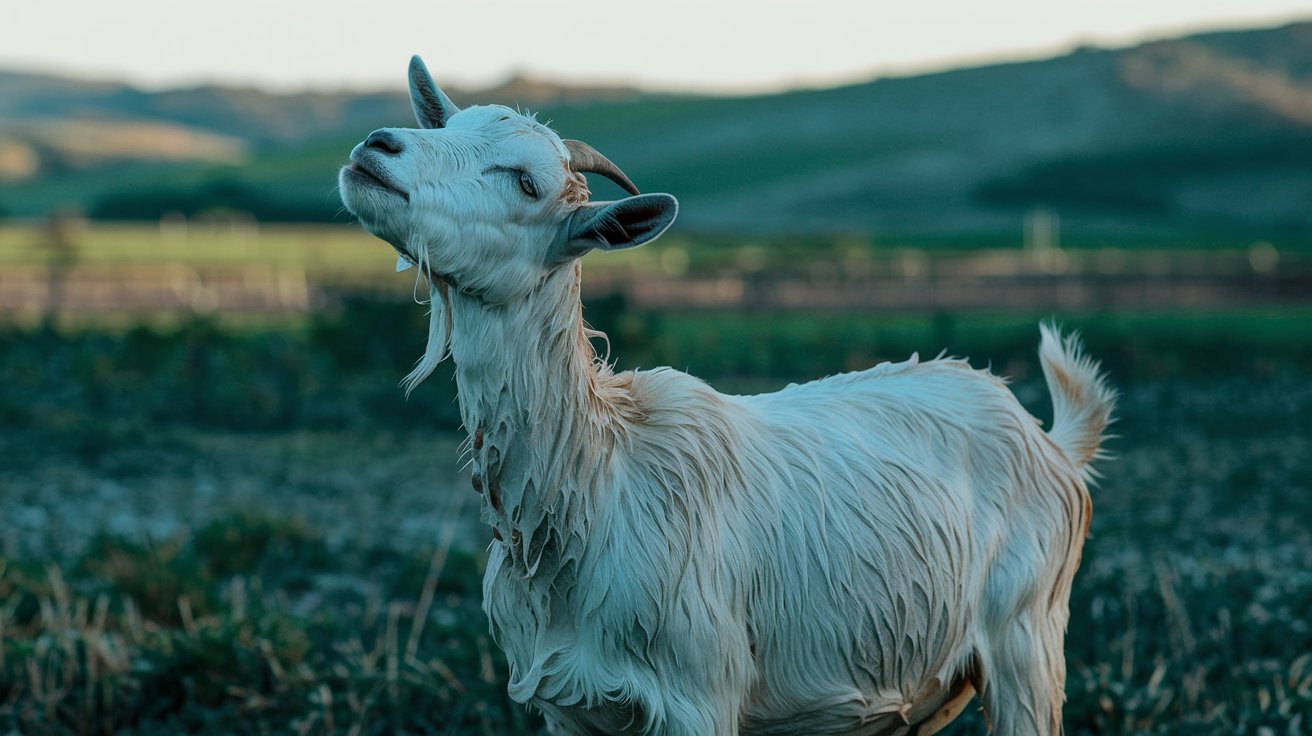If you also own a goat, you will also be surprised that sometimes you might find out your goat is washed. It can happen by accident, due to an unexpected change in weather like rain, or even because someone thought it needed a bath. It can seem like a major issue, but washing a goat the wrong way or exposing it to wet and cold conditions can bring a lot of health issues.
Here in this blog, we’ll help you to find out what it means when you realize your goat is washed, the potential risks, and how to take care of your goats perfectly when they get wet.
What Does It Mean When Your Goat Is Washed?
You have also listened to the phrase “When you find out your goat is washed.” This can be analyzed in different ways,
- Your goat got wet from rain or water. Usually, goats that wander outside during rainstorms or near water sources may end up completely soaked.
- Someone washed your goat. Sometimes, people unfamiliar with goat care might think washing goats like a pet dog is a good idea.
- Your goat fell into the water by accident. If you have ponds, rivers, or water troughs nearby, there’s always a chance that a goat might slip and get drenched.
No matter the cause, wet goats need proper care to prevent stress and health issues.
Is It Safe to Wash a Goat?
Washing a goat may be required in some circumstances, but it should always be done safely. Unlike dogs or cats, goats don’t need to be bathed on a regular basis. Excessive cleaning may remove their skin’s natural oils, and their coats naturally absorb dirt.
Situations When Washing a Goat is Acceptable:
- If the goat has mud, feces, or harmful substances stuck in its fur.
- Before show events where cleanliness is important.
- During medical treatments, if prescribed by a vet.
Risks of Washing Goats Too Often:
- Chilling or Hypothermia: If a goat remains wet in cold weather, it can suffer from dangerous body temperature drops.
- Skin Irritations: Harsh soaps or shampoos can remove natural oils and cause dry skin.
- Stress: Goats are not naturally accustomed to being bathed, and excessive handling can cause anxiety.
What to Do When You Realize Your Goat Is Washed?
If you find out your goat has been washed, taking quick action is essential to prevent any health problems.
Check If Your Goat Is Wet or Damp
- Run your hands through the goat’s fur to determine how soaked it is.
- If only slightly damp, the goat may dry naturally in the sun.
- If it is fully wet, you need to dry it quickly.
Dry Your Goat Thoroughly
- Use Towels: Absorb as much moisture as possible by rubbing the goat with dry towels.
- Warm Air Drying: In colder weather, a low-heat hairdryer can help dry the fur faster. Keep it at a safe distance to avoid overheating.
- Let It Stand in the Sun: If the weather is warm, allowing the goat to dry in the sun is the best and most natural option.
Keep the Goat Warm and Comfortable
- Place the goat in a dry, warm shelter if the weather is cold.
- Provide extra straw bedding to help with warmth.
- Give high-energy food such as grain or alfalfa to help restore body heat.
Watch for Signs of Illness
After getting wet, goats may develop chills, respiratory infections, or stress-related issues. Monitor for:
- Shivering or Weakness: This could indicate hypothermia, which requires immediate warming.
- Coughing or Runny Nose: Signs of respiratory infections due to cold exposure.
- Loss of Appetite: A goat refusing to eat after being washed may be unwell.
If symptoms persist, consult a veterinarian immediately.
Prevent Future Washing Incidents
To avoid this, when you realize your goat is washed in an unsafe way, take precautions:
- Provide Proper Shelter: Goats should have access to dry, covered areas to avoid rain.
- Secure Water Sources: Make sure water troughs, ponds, or wet areas are fenced off to prevent accidental falls.
- Educate Farm Workers or Family Members: Ensure that no one unnecessarily washes the goats without understanding the risks.
Can Goats Naturally Handle Getting Wet?
Goats generally dislike rain and prefer to stay dry. However, if a goat gets wet, its ability to handle the situation depends on:
- Temperature: Warm weather helps wet goats dry off naturally.
- Shelter Availability: A covered barn or shed prevents exposure to rain and cold.
- Goat’s Overall Health: Sick or young goats are more vulnerable to chills.
Final Thoughts
It’s important to respond quickly when you discover that your goat has been washed, whether it was due to rain, unintentional water exposure, or an unwanted bath. Your goat will remain healthy and stress-free if you keep an eye on it, dry it, and warm it. To avoid such circumstances, give your goats the right shelter and care at all times and refrain from bathing them frequently unless it is absolutely required.
Comprehending the requirements of your particular goat breed may also aid in guaranteeing their welfare. No matter what unforeseen circumstances arise, you can make sure that your goats are secure, happy, and healthy by following these guidelines.
FAQs
1. Can goats get sick if they get wet?
Yes, goats can get sick if they stay wet for too long, especially in cold weather. Wet conditions can lead to hypothermia, pneumonia, and other health issues.
2. What should I do if my goat gets soaked?
Dry your goat immediately using towels and a blow dryer if needed. Keep it in a warm, dry place and monitor it for signs of illness.
3. Is it safe to bathe a goat?
Goats do not usually need baths, but if necessary, use warm water and mild soap, and dry them thoroughly afterward to prevent health issues.
4. How can I keep my goats dry during rainy weather?
Provide a well-sheltered area with dry bedding. Ensure your goat pen has proper drainage to avoid standing water.
5. Can goats tolerate cold and wet conditions?
Goats can handle cold temperatures, but wet and cold conditions combined can be dangerous. A wet goat loses body heat quickly, increasing the risk of illness.





